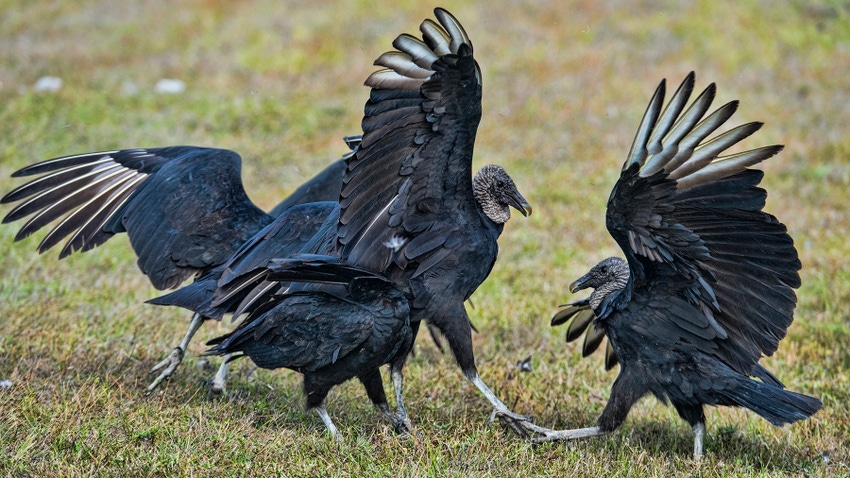Lawmakers target black vultures
Cattle groups praise effort to fend off feathered foe.

Sen. Markwayne Mullin, R-Okla., has introduced legislation that would allow farmers and ranchers to eliminate black vultures threatening their livestock. The Black Vulture Relief Act is similar to a House bill introduced by Reps. John Rose, R- Tenn., and Darren Soto, D- Fla., earlier this year.
Mullin says ranchers should have the right to protect their livestock from predators. He notes black vulture attacks are often gruesome affairs lasting several hours. Those attacks cost ranchers an average of $2,000 for every calf killed.
“Attacks from black vultures have become far too common and our livestock producers are suffering the consequences,” he says. “As a rancher myself, I know firsthand the implications of the rapidly growing black vulture population and the negative effect this has on livestock production.”
Black vultures are currently protected under the Migratory Bird Treaty Act of 1918. Consequently, those wanting to take one must first obtain a depredation permit from the U.S. Fish & Wildlife Service.
Fish & Wildlife operates a pilot program allowing state officials to issue depredation permits to some ranchers. However, those permits limit ranchers to taking only three to five black vultures per year.
Critics of the rules say this is insufficient since attacks may involve up to 50 birds at a time. They also contend black vultures should not be subject to stringent protection laws since they are currently listed as a species of lowest conservation concern.
U.S. Cattlemen’s Association President Justin Tupper says black vultures are responsible for nearly 2.1 million cattle losses per year. Oftentimes the birds focus on newborn calves, flocking to fenceposts when cows go into labor.
According to data from the National Cattlemen’s Beef Association, there are now more than 190 million black vultures across the country. That represents an estimated 468% increase since 1990. NCBA Property Rights and Environmental Management Committee Chair Charlie Besher acknowledges black vultures play a role in the ecosystem. He says cattle producers have no desire to eradicate them. However, he calls the current system of managing the birds restrictive and ludicrous.
“The species is abundant across the continent, and no longer a conservation concern,” Besher says. “These birds are extremely vicious predators, and their attacks on cattle are devastating, both emotionally and financially.”
While the bill gives ranchers leeway to take more birds, they would be required to document kills and submit an annual report. This would allow the Fish & Wildlife Service to better monitor bird population levels. The legislation also prohibits ranchers from using poison as a kill method.
Other Senators cosponsoring the Black Vulture Relief Act includes Sens. Tommy Tuberville, R- Ala., Cindy Hyde-Smith, R- Miss., Bill Hagerty, R-Tenn., Marco Rubio, R-Fla., Rick Scott, R-Fla., Katie Britt, R-Ala., Roger Marshall, R-Kan., Ted Cruz, R-Texas, and Roger Wicker, R-Miss.
In addition to the National Cattlemen’s Beef Association and the U.S. Cattlemen’s Association, the bill has also been endorsed by the American Farm Bureau Federation, the Oklahoma Department of Wildlife & Conservation, 19 state cattlemen’s associations and six state farm bureaus.
About the Author(s)
You May Also Like




.png?width=300&auto=webp&quality=80&disable=upscale)
